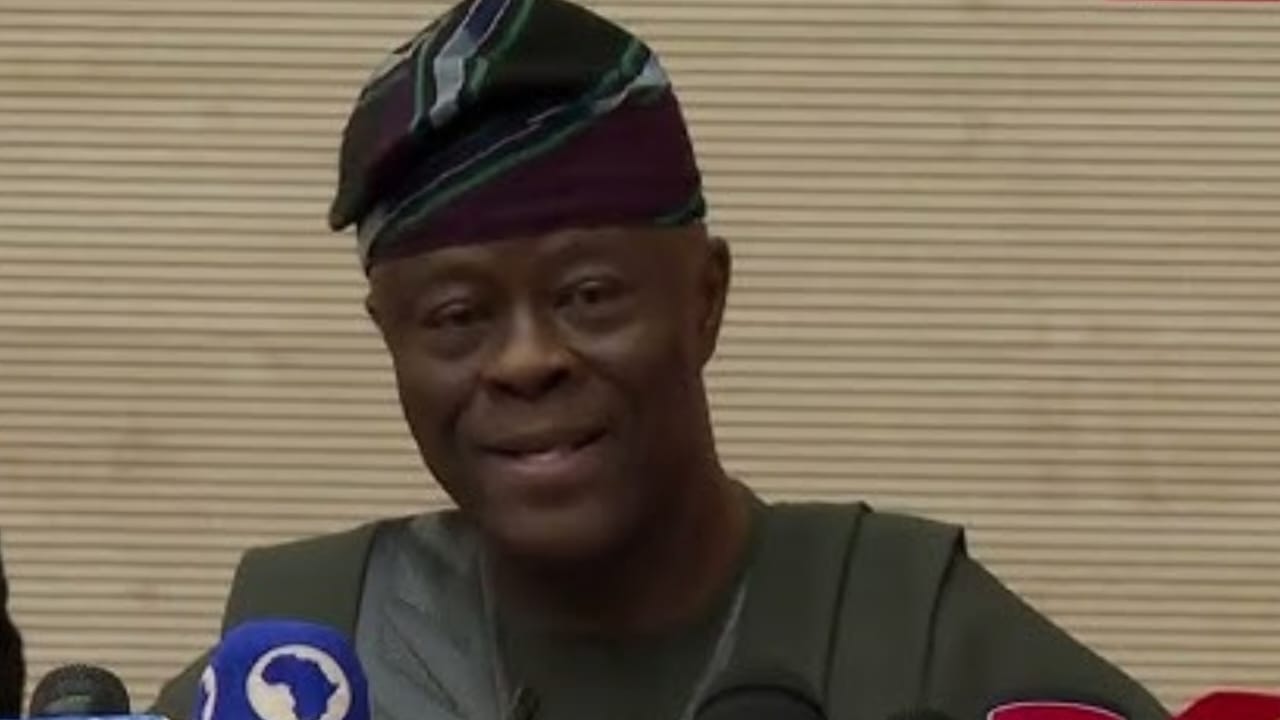Business
FG’s monthly revenue inflow exceeds N1 trillion- Minister

According to Minister of Finance Wale Edun, the average monthly revenue into the Federation Account has climbed from N650 million to almost N1 trillion since the subsidy was abolished four months ago.
In Asaba on Monday, the minister made this declaration at the opening ceremony of the Federation Account Allocation Committee (FAAC), which is a four-day retreat.
Special Duties, Permanent Secretary, Finance The minister was represented by Mr. Okokon Udo, who said that the government had long since realised that fuel subsidies could not be continued.
He believed that the subsidy system drained funds that could have been used for practical expenses that were vital to the public’s well-being.
Read Also: Tinubu and four ministers are traveling to Germany
The minister promised that people-oriented policies would continue to be implemented, stating that the current administration is aware of the needs and welfare of Nigerians.
“Achieving the 22 percent GDP target for tax revenue and the 18 percent GDP target for taxes by 2026 are among the administration’s primary goals, as everyone is aware.
But in doing so, we recognise the need to avoid overtaxing taxpayers by bringing in an excessive number of additional levies.
“For ease of collection, it is necessary to broaden the tax base and simplify and streamline tax administration,” he stated.
“One of the previous actions of this government following its election was the formation of a Presidential Committee on Fiscal Policy and Tax Reforms,” Edun continued.
“An optimistic interim report has been submitted by the committee.”
The minister added that the current government was aware of the immense suffering that Nigerians were going through as a result of the elimination of fuel subsidies and the harmonisation of currency rates.
He gave them the assurance that their sacrifices would never be in vain.
As we continue to build on recovery efforts and concentrate on attaining inclusive economic growth and development, the government is adamant about making sure the economy returns to normal.
According to Edun, the administration of President Bola Tinubu has implemented well-thought-out temporary measures thus far to lessen the financial impact of the ongoing changes.
Regarding the retreat’s theme, “Building a Resilient Economic through Diversification of the Nation’s Revenue,” the minister praised the selection and emphasised its appropriateness.
Edun added the retreat made it abundantly evident how vital it is to diversify the economy of the country.
Governor Sheriff Oborevwori of Delta assigned the federal government the job of gathering political will by establishing the institutional framework and policies required to diversify the country’s economy in his inaugural remarks.
The governor, speaking through his deputy, Sir Monday Onyeme, stated that until significant efforts were made in other important areas, there was no magic bullet to diversify the country’s economy away from an excessive reliance on crude oil revenue.
He pointed out that the country’s economy needs to be more diverse than just talking points; actionable, quantifiable efforts must be taken to support exports of manufactured goods, services, and agricultural products in addition to expanding the tax base.
By establishing a Trade and Export section to spearhead the process and turn economic diversification into a reality, Oborevwori confirmed that Delta was taking the lead in diversifying its economy.
He pointed out that there were certain schools of thought that thought the discovery of crude oil was a curse since it caused the economy’s non-oil sectors to lose out on agriculture and other sources of income.
Oborevwori claimed that the oil resources of the nation had not been adequately handled and expressed concern over the oil sector’s five to seven percent GDP contribution.
He continued by saying that although the non-oil sector—which included primarily small-scale businesses, manufacturing, agribusiness, and agriculture—contributed 93% to 95% of total revenue, the majority of public funds came from the oil and gas industry.
“The government must expand the non-oil sector to broaden the revenue base and ensure that the maximum benefits from the oil industry are realised,” he stated, citing statistics.
The governor expressed gratitude to the FAAC committee for improving revenue accruals into the federation account and for their dedication to their duties.
He asked the committee to investigate paying oil-producing states 13 percent of their derivation.
Oborevwori threw down a challenge to the committee: utilise the retreat to better comprehend the roles played by all stakeholders in the nation’s economic diversification, including the worries expressed by others regarding the Nigeria National Petroleum Company Limited’s new responsibilities.
Accountant Generals from the 36 states and the Federal Capital Territory, together with other relevant parties including the Customs, are reportedly attending the retreat, according to the News Agency of Nigeria (NAN).
